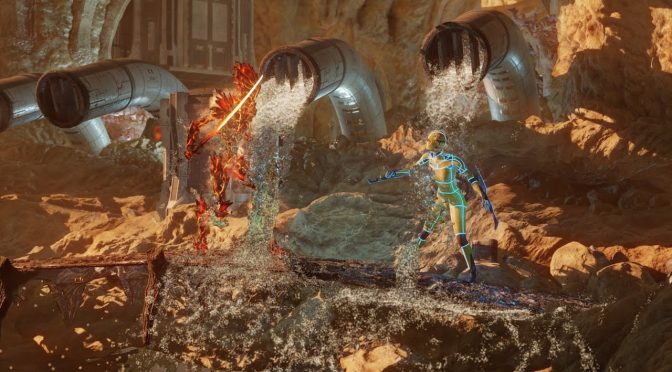UL Benchmarks has shared the first tech demo (in video format) for Google Stadia. Stadia is Google’s new streaming service that promises to make multi-GPU computing available to everyone through the cloud. In this tech demo, UL Benchmarks shows how game developers can use cloud-based, multi-GPU rendering on Stadia to create richer, more dynamic game experiences.
In this demo, one GPU handles most of the traditional geometry rendering. Additional GPUs are called in as needed to enhance the scene with dynamic fluid simulations and complex particle effects.
As UL Benchmarks stated:
“Multi-GPU computing has the potential to make game experiences richer and more dynamic. But PCs with multiple GPUs are rare and expensive, which gives game developers little reason to explore the opportunities.
For the last few months, we’ve been working with Google to create a real-time demo of cloud-based, multi-GPU rendering to show how games might use the extra performance available through Stadia.”
Now while this sounds great on paper, we’ve seen a lot of developers lately abandoning multi-GPU support on the PC. As we’ve seen in our PC Performance Analysis articles, it’s really rare these days finding a new release with support for either SLI or Crossfire. Therefore, I’m not certain whether third-party game developers will indeed take advantage of Stadia’s multi-GPU support (though I can see first-party studios putting multi-GPUs to good use).
But anyway, enjoy the video and stay tuned for more!

John is the founder and Editor in Chief at DSOGaming. He is a PC gaming fan and highly supports the modding and indie communities. Before creating DSOGaming, John worked on numerous gaming websites. While he is a die-hard PC gamer, his gaming roots can be found on consoles. John loved – and still does – the 16-bit consoles, and considers SNES to be one of the best consoles. Still, the PC platform won him over consoles. That was mainly due to 3DFX and its iconic dedicated 3D accelerator graphics card, Voodoo 2. John has also written a higher degree thesis on the “The Evolution of PC graphics cards.”
Contact: Email

